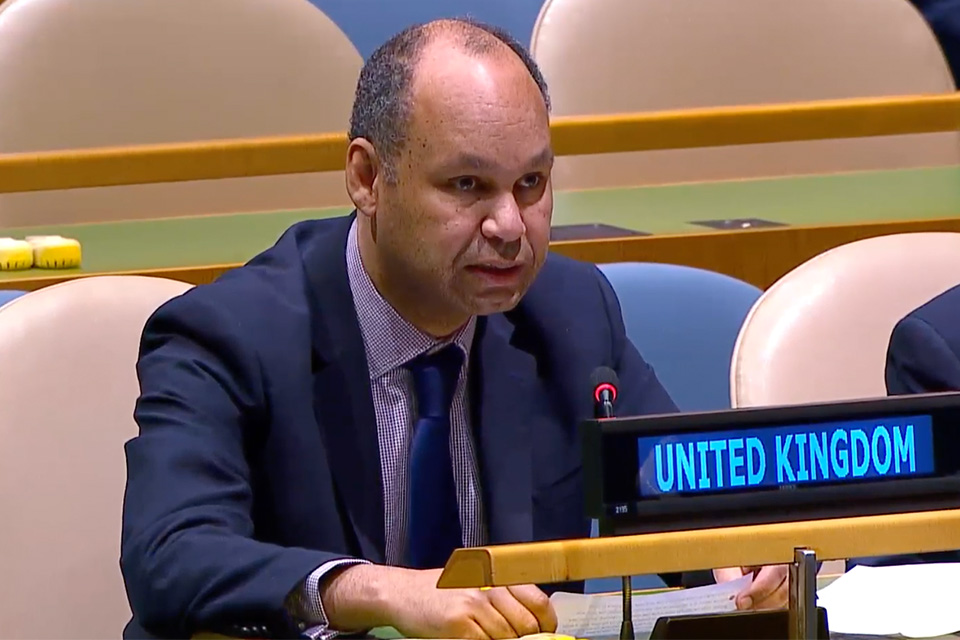Defending freedom of religion or belief for all and combating intolerance against all is a UK priority: explanation of vote at the UN General Assembly
Statement by Ambassador James Kariuki at UN General Assembly on UNGA resolution "Measures to combat Islamophobia".

Hatred on the basis of religion or belief, including anti-Muslim hatred, antisemitism and the persecution of Christians, is deplorable. We condemn incitement to discrimination, hostility or violence wherever it occurs.
The UK is a proud multi-ethnic, multi-faith democracy. However, we recognise the challenges we face, and seek to address these issues. We are funding a national organisation to support victims of anti-Muslim hatred, as well as protective security programmes for mosques, and schemes helping to keep the Jewish community safe.
Defending freedom of religion or belief for all, and combating intolerance against all, is a UK priority. Therefore it is with regret that there were elements of this resolution the UK could not support – and, for that reason, we abstained.
In the UK, we have a proud tradition of religious freedom alongside the freedom to critique ideas and teachings of religions.
OP2 of this resolution imposes limits on freedom of expression that go beyond the parameters of international law. We agree that people should not burn holy books or express religious intolerance, and that such acts can be done to incite religious hatred. But we disagree with the strong implication that such acts always incite hatred.
We believe that free speech is important. We must take care not to introduce processes for blasphemy laws by the back door. People must be free to practice religion; be free from persecution for the practice of their religion; but also be free to criticise religion if they choose.
While we have seen an unacceptable rise in anti-Muslim hatred, globally many people of other beliefs or religions also face discrimination. We are concerned by the resolution’s narrow focus on one religious group.
OP3 mandates a UN mechanism to address problems faced by one specific religious community when those of other religions or beliefs do not have equivalent mechanisms.
Mr President, we thank Pakistan and the OIC for their engagement, but are disappointed that efforts by a range of countries to find more inclusive and human rights-compliant language were not taken on board.
The UK’s position should not be inferred as condoning anti-Muslim hatred or diminishing our solidarity with those who experience it – quite the opposite – it is based on commitment to principles of international law and to treat individuals of all religions or beliefs equally.
Going forward, we hope to work together to protect all people from religious hatred and intolerance, and to uphold freedom of religion or belief, and freedom of expression.